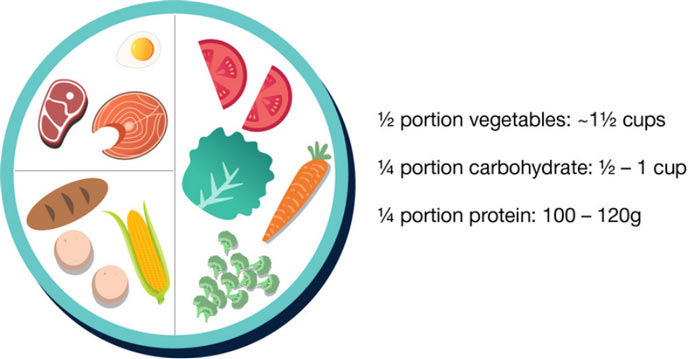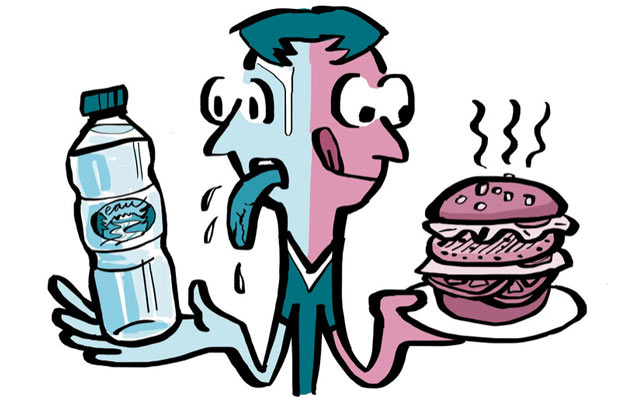Understanding Ghrelin and 5 Ways to Reduce it for Weight Loss
Feb 10, 2024 By Madison Evans
Often dubbed the "hunger hormone," Ghrelin critically regulates appetite. Mastering the management of this hormone can prove pivotal in accomplishing weight loss objectives. By implementing suitable strategies, you can actively decrease Ghrelin levels and foster a more optimal body state.
The Impact of Ghrelin on Weight Gain
The stomach primarily produces the peptide hormone Ghrelin, which crucially signals hunger to the brain. Elevated levels of Ghrelin trigger hunger sensations and can potentially cause overeating, thereby leading to weight gain. As a vital regulator, this hormone plays an essential role in orchestrating complex interactions between our digestive system and brain. The first step towards effective weight management, comprehending the intricate ways Ghrelin influences your body.
Delving deeper, Ghrelin exerts its influence beyond mere immediate hunger signals. High levels of Ghrelin may indeed foster a preference for calorie-dense and high-fat foods, thus adding complexity to endeavors aiming at weight control. This underscores the imperative need not only to acknowledge Ghrelin's impact on appetite but also its intricate participation in molding dietary preferences and habits. This is a fascinating area ripe for further exploration in research.
- Consideration: Recognizing emotional triggers for overeating is essential, as emotions can influence Ghrelin levels, contributing to an unhealthy cycle of emotional eating.
- Caution: Extreme dietary restrictions may lead to an increase in Ghrelin production, potentially sabotaging weight loss efforts.
1. Balancing Nutrition for Ghrelin Control
Adequate nutrition is a fundamental strategy for weight loss goals. Notably, it controls Ghrelin levels. Diets abundant in protein and fiber are pivotal. They maintain balance by regulating the influence of Ghrelin. Lean meats, legumes, and dairy contain proteins that promote satiety. Similarly, fruits and vegetables rich in fiber contribute to sustained feelings of fullness.

To delve deeper into the nutritional aspect, you must understand the glycemic index (GI) of foods. It's a crucial consideration. Foods with low GI release glucose slowly into your bloodstream. This action prevents rapid spikes in insulin levels and subsequent elevation of Ghrelin, thereby maintaining effective control over this hormone. You can optimize your nutritional choices further for effective Ghrelin control by incorporating a variety of low-GI foods. This is key.
- Consideration: The timing of meals matters; spacing them evenly throughout the day helps maintain steady blood sugar levels, preventing sudden Ghrelin surges.
- Caution: Highly processed foods often have a higher glycemic index, potentially contributing to increased Ghrelin production.
2. Regular Exercise as a Ghrelin Regulator
The effects of participating in consistent physical activity extend beyond the simple burning of calories. It regulates the production of Ghrelin. Maintaining a healthy hormonal balance is aided by exercise. Studies indicate that aerobic activities, strength training, or their combination can have a positive impact on levels of Ghrelin. Your preferences and lifestyle seamlessly integrate with an exercise routine. Therein lies the key to optimal fitness.
Regular exercise actively contributes to the development of muscle mass, a crucial factor in metabolism regulation. The necessity for increased energy expenditure to maintain muscle tissue directly benefits long-term weight management. By integrating diverse forms of physical activity into our routine, we adopt a holistic approach that ensures robust Ghrelin regulation and fosters comprehensive weight loss.
- Consideration: Consistency in your exercise routine is crucial; irregularities may impact Ghrelin regulation and overall hormonal balance.
- Caution: Intense or prolonged exercise without adequate recovery may lead to increased Ghrelin levels; striking a balance is essential.
3. Adequate Sleep for Ghrelin Regulation
A cornerstone of effective weight management is quality sleep. It directly implicates Ghrelin regulation. Insufficient sleep disrupts the delicate hormone balance. This disruption leads to elevated levels of Ghrelin and intensifies cravings, particularly for high-calorie foods. To support your body in maintaining optimal hormonal levels, prioritizing a good night's sleep is indeed essential.
Delving deeper into the sleep-weight connection, research suggests that our body's internal clock, the circadian rhythm, influences Ghrelin secretion. Irregular sleep patterns often disrupt this rhythm. These disruptions, in turn, can contribute to the dysregulation of Ghrelin and other hormones associated with hunger and metabolism.
- Consideration: Establishing a consistent sleep routine and creating a sleep-conducive environment enhances the effectiveness of sleep in Ghrelin regulation.
- Caution: Screen time before bedtime may interfere with sleep quality, potentially impacting Ghrelin and other hormone levels.
4. Stress Management for Ghrelin Reduction
A significant factor in the elevation of Ghrelin levels and subsequent weight gain is chronic stress. The release of cortisol, a hormone associated with heightened appetite and increased production of Ghrelin, occurs when one experiences stress. Therefore, maintaining an optimal hormonal balance requires incorporation into your daily routine of practices that reduce stress such as meditation or deep-breathing exercises.
Delving deeper into the stress-weight connection reveals a crucial observation, individuals experiencing stress often engage in overeating, specifically opting for comfort foods rich in sugar and fat. The amalgamation of these dietary preferences with heightened Ghrelin levels establishes a difficult cycle. This dynamic impedes effective management of weight and presents a significant challenge.
- Consideration: Mindfulness practices, such as mindful eating, can positively influence both stress levels and Ghrelin regulation.
- Caution: Ignoring chronic stress may lead to prolonged elevation of Ghrelin, perpetuating difficulties in weight management.
5. Hydration and Ghrelin Levels
Universally beneficial for overall health, staying hydrated notably impacts Ghrelin regulation. When you drink water before meals, this action creates a sense of fullness which is an effective strategy in controlling Ghrelin-driven hunger. The concept of hydration extends beyond simply consuming large quantities of water. It also involves considering the timing and context surrounding your fluid intake, particularly concerning meals.

Delving further into the science of hydration, studies posit: that cold water might amplify its appetite-suppressing properties. The body, to warm this cooler liquid up to internal temperature, expends energy. Thus, fostering a transient surge in metabolism. This factor, alongside the sensation of satiety, is an added bolster for endeavors in weight management.
- Consideration: Optimal hydration varies from person to person; paying attention to your body's signals for thirst is key to maintaining balance.
- Caution: Excessive reliance on caffeinated beverages may have diuretic effects, potentially affecting overall hydration and Ghrelin regulation.
Conclusion
To wrap it all up, understanding and managing Ghrelin indeed are integral elements for achieving successful weight loss. Through the adoption of a balanced diet, incorporation of exercise routines regularly, prioritization of sufficient sleep, effective stress management, and consistent hydration, you can aptly curtail elevated levels of Ghrelin. Seize command over your hormones, infusing power into your journey towards shedding pounds. This will culminate in a healthier, more confident version of yourself.







